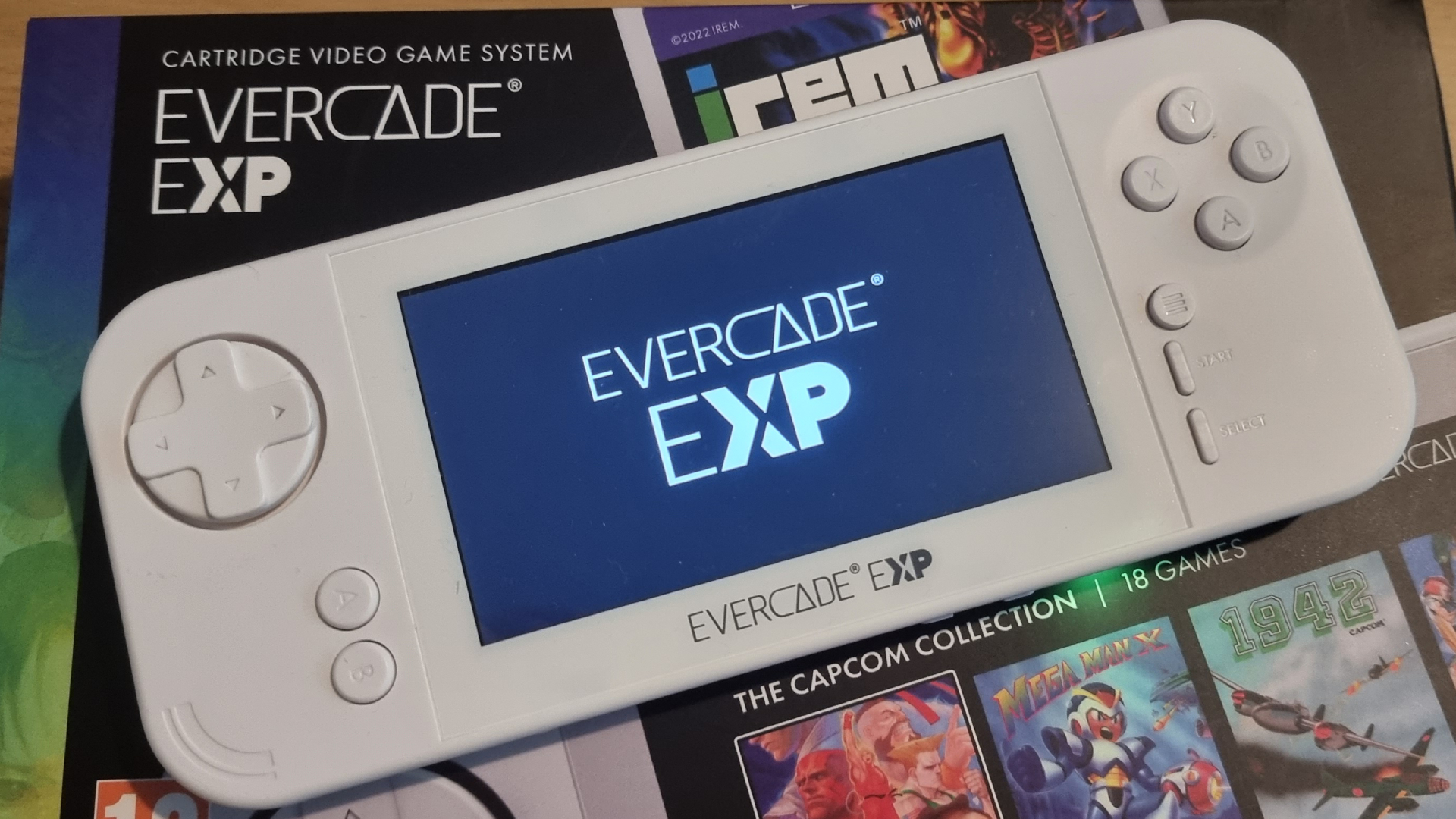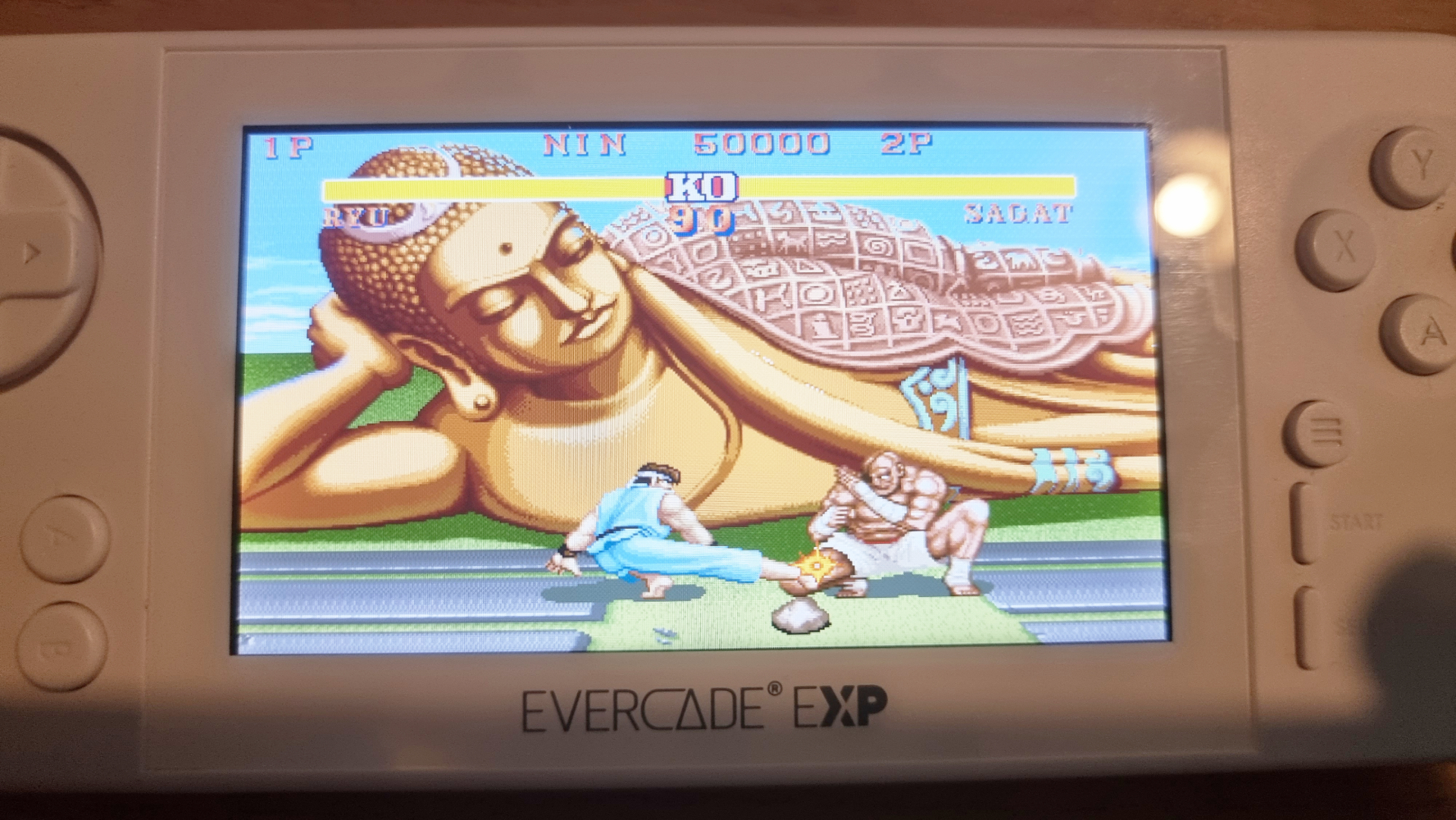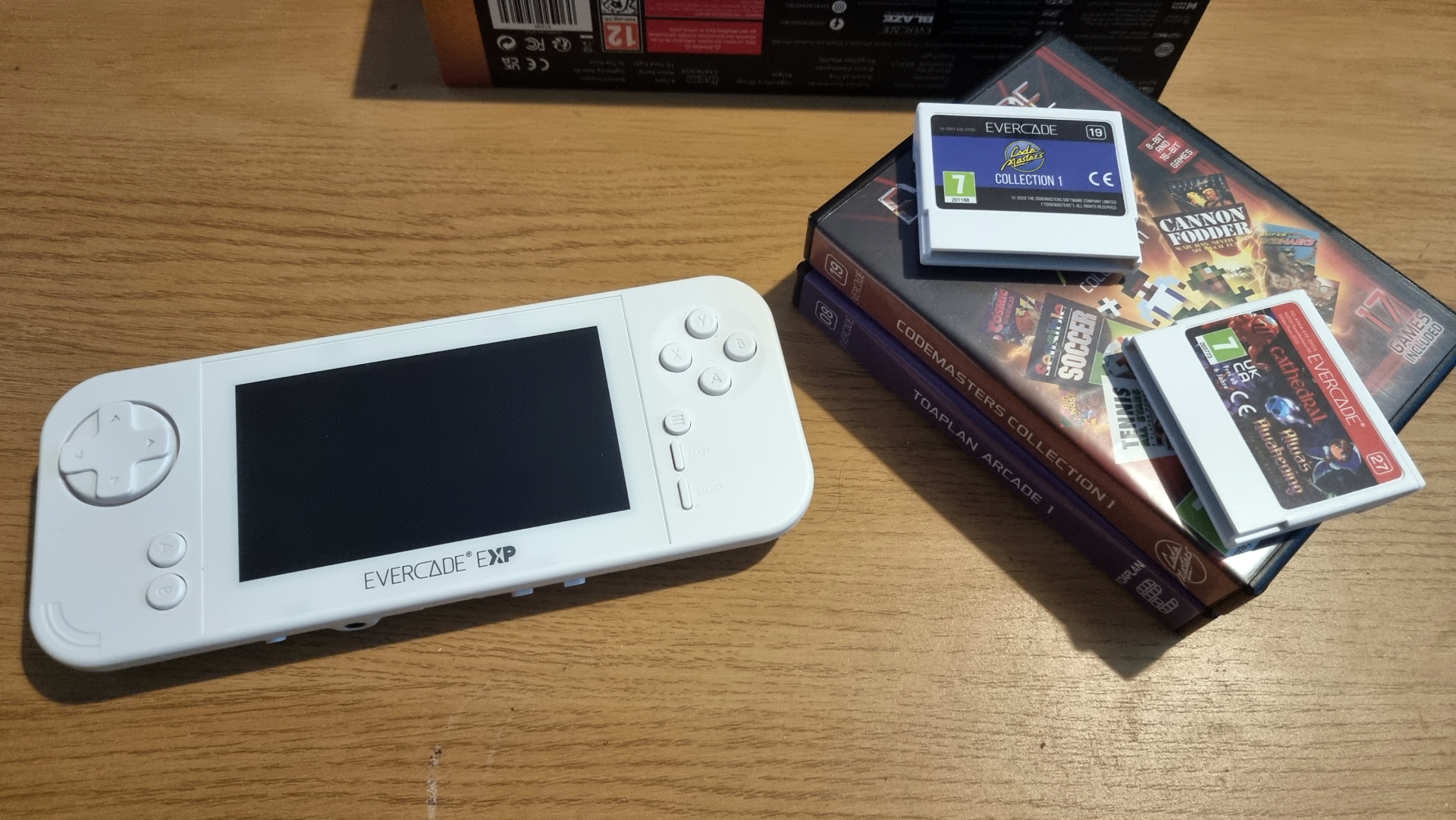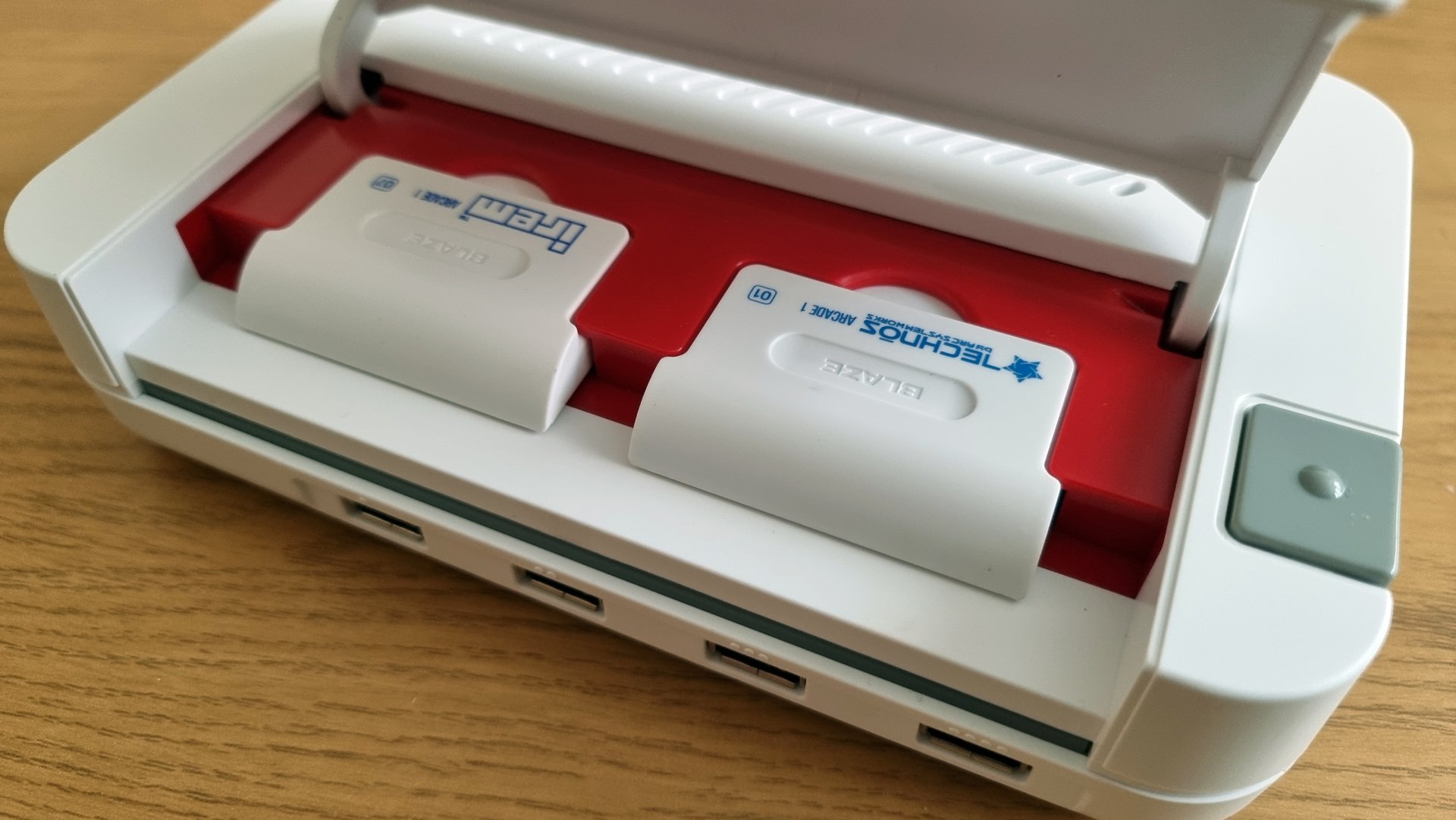
In an industry that’s growing evermore digital, sometimes it’s nice to reflect back on where we were a decade or three ago: a time when your 3DS, Game Boys and PSPs were the norm. It’s pleasant to hold a torch for a simpler time, when you’d pop that chunky Super Mario Bros. DX cartridge in and pray your last pair of AA batteries would last you on the long car trip to North Wales.
That torch is being kept lit by Blaze Entertainment; specifically, its Evercade EXP handheld. Along with its Evercade VS home console counterpart, it is helping to keep not only retro game and arcade preservation alive and well, but also the nostalgic feeling of clicking in blocky physical cartridges. I’ve had a blast with these retro-centric machines.
The more time I put into the Evercade EXP, exploring its sizable library of cartridge-based compilations, the more I considered its importance in the wider gaming landscape. If Sony, Microsoft and Nintendo are the foundations that keep the industry ticking, then Evercade and devices like it are building blocks that’ll shape it into something altogether more unique. I sincerely wish more publishers would try what Evercade is doing.
Humble, yet powerful

The most interesting aspect of Evercade’s consoles is the combining of classic and modern sensibilities. Evercade’s library is strictly physical, and you have to buy each cartridge separately, either from the Evercade website or from retailers like Amazon. Cartridges are relatively affordable and are packaged in their own bespoke cases, complete with cover art and flavor text on the back. The Evercade EXP even comes with a full-color manual – the kind I delighted in reading whenever I was blessed with a new PS1 game as a kid.
Cartridges don’t just house a single title, though, and this is where Evercade has modernized retro collecting. Instead, each cartridge contains a carefully curated compilation of retro hits, categorized by publisher or console. Each cartridge feels like a museum exhibit as a result, letting you play through a swathe of golden oldies from the likes of Codemasters, Team 17, Data East, Namco and Capcom.
What we have with Evercade, then, is something pretty innovative when it comes to retro game collecting. You’ll find classics in its cartridge library that aren’t being preserved anywhere else. That, combined with the satisfying nature of popping open a fresh box and clicking in that blocky cartridge, and you have a moreish, old-school experience that you can’t get elsewhere without investing hundreds in a decades-old system.
The case for digital

Gaming compilations are a dime a dozen in the digital age, and they typically sell extremely well for good reason. Fans of older titles are always down to revisit classics at a reasonable price. Ultimately, it’s a great thing for game preservation, especially as modern consoles move to embrace backwards compatibility, an attitude which may well make these digital collections future proof.
The tradeoff you make with digital copies, though, is the loss of that charming physicality of a cartridge. That’s not entirely a bad thing, however. Digital is a more convenient medium and saves on environmentally unfriendly materials like plastics. With that in mind, it’s the digital future that I prefer to embrace when it comes to game collecting.
However, I find myself somewhat saddened by that conclusion. There’s something so strangely wonderful about building up a collection of physical games, especially for older-generation consoles. It’s like having your own slice of history packed onto a Kallax shelf from Ikea. Something you can look at, smile, and explore at your own pace.
That’s why I’m really digging the sort of halfway house Evercade has created. It goes big on the physical, but understands that retro collecting can be a supremely expensive endeavor. By packing a variety of games on a single, affordable cartridge, Evercade provides a more accessible entry point into collecting physically.
The future of retro game collections?

Evercade has shown that there’s an audience for collecting classic games in physical format, and a large chunk of that interested audience often turns away at the astronomical price tag that comes with the hobby. Thankfully, I think Evercade has successfully wedged the door open here, and I believe it bodes well for the future of old-school collections.
We’re living in an age where we can fit hundreds of gigabytes of data on hardware the size of a postage stamp. Storage is growing ever more economic, both in terms of size and affordability. So I think it’s only a matter of time before we start seeing larger compilations squeezed into cartridges comparable in size to the best SD cards for Nintendo Switch.
And I’m not talking about cartridges or USB sticks carelessly packed with inaccurate ROMs. Rather, we could well be on the verge of publishers expressing interest in smaller companies like Blaze Entertainment, to provide batches of games in a physical format. There’s good money in it, of course, but it’s also a big win for preservation as a whole.
We’re already seeing this in enormous collections. The Atari 50: The Anniversary Collection is an anthology so huge it packs in over 90 (90!) Atari classics, lovingly curated and paired with a suite of documentaries and memorabilia.
Evercade feels like the first major step on this journey to provide older games, in physical format, at more affordable prices. And I can’t wait to see how others embrace this form of collecting, hopefully, to combat the dizzying costs of physical games on eBay and secondhand sites just like it.







